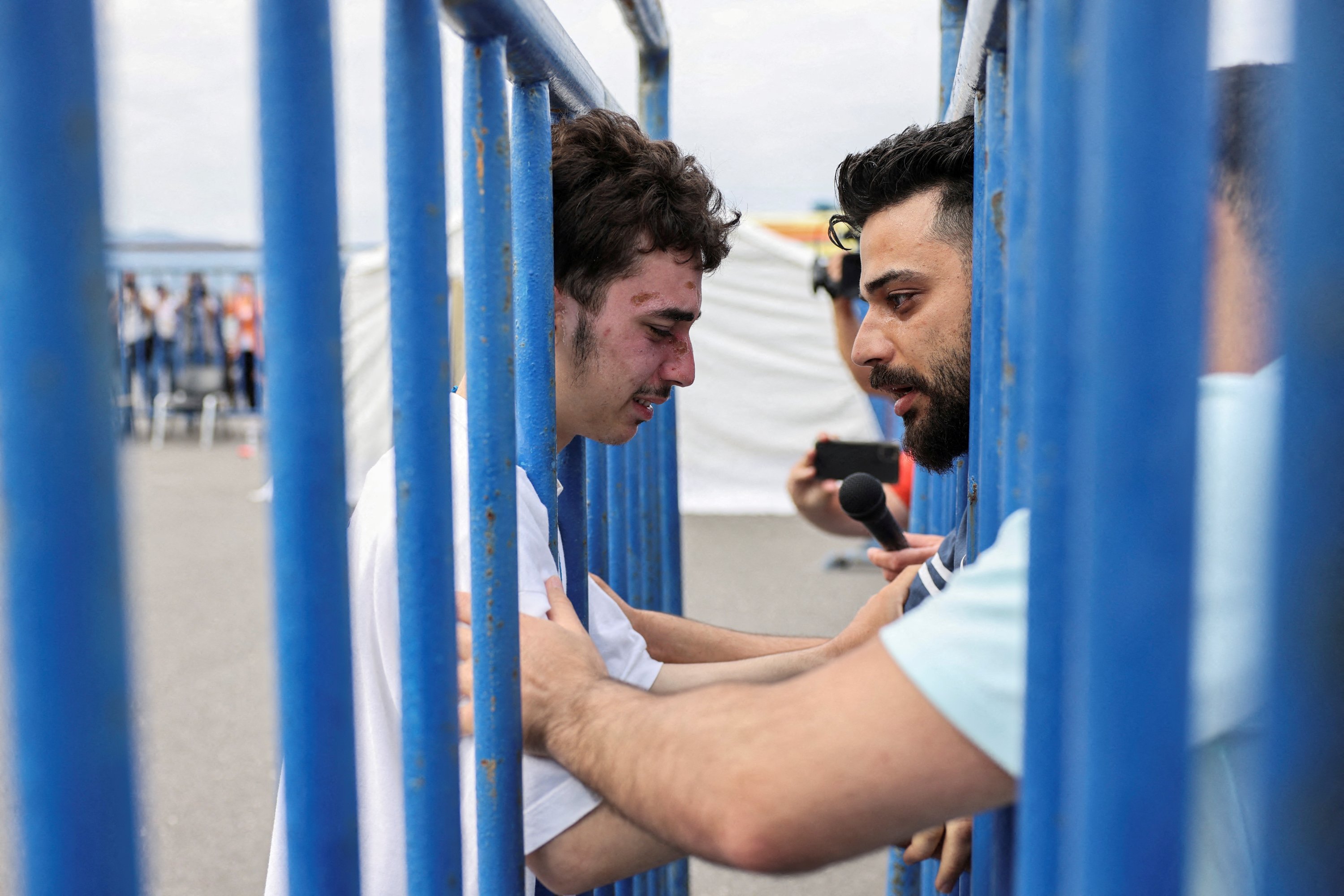© Turkuvaz Haberleşme ve Yayıncılık 2024
In an incessant stream of heart-wrenching events that unfold every passing minute, it has become all too apparent that few corners of the world remain immune to the onslaught of misfortune. Tales of anguish, conflicts and sorrow permeate the headlines, casting a somber veil over individuals, families, communities and nations at large.
In recent days, amid the myriad of distressing accounts, certain stories have seized the limelight across all forms of media, from the sprawling reaches of Twitter timelines to the prominent pages of newspapers. First and foremost, the harrowing tale emerged of a fishing vessel crammed with refugees embarking on a dangerous journey from Africa to Europe. Tragically, the boat capsized in international waters, carrying with it the hopes and aspirations of approximately 750 men, women and children hailing from Syria, Egypt, the Palestine and Pakistan. Their aim was to reunite with loved ones residing in Europe.
The grim aftermath reveals that over 500 migrants have seemingly perished. Investigations are underway, delving into the realms of human trafficking and the adequacy of rescue responses. It is our fervent hope that those complicit in these heinous acts, as well as those responsible for insufficient rescue efforts, will be held accountable. Yet, one fact remains abundantly clear: hundreds of lives embarked on this perilous voyage searching for a brighter future, only to find their dreams shattered along the way.
While the world collectively mourned the loss of these souls, another tragic narrative emerged and captured the attention of global headlines. The 21-foot-long pilot-driven submersible, Titan, operated by the U.S.-based OceanGate Expeditions, abruptly lost contact with its surface vessel on Sunday morning. This unfortunate incident occurred approximately one hour and 45 minutes into what should have been a two-hour dive to the historic Titanic shipwreck – the most renowned wreck in the world.
These two stories, originating from different corners of the globe, embody two separate tragedies, transpiring across two vast seas, with countless lives lost in pursuing disparate dreams. It compels all of us, as readers and writers alike, to look introspectively and confront fundamental questions: Do certain lives hold greater significance than others? Are we genuinely impartial in dedicating equal coverage to the loss of human lives? Or do we, as readers, extend the same measure of attention to stories of lives relinquished in distant lands as we do to those closer to home? These queries serve as a litmus test, determining our individual commitment to integrity and the value we ascribe to human lives, regardless of their proximity or geographical origin.

Should we prioritize the plight of children fleeing war in one region while neglecting those in other parts of the world? If we lavish more attention upon a submarine-carrying business magnate and disregard refugee boats navigating treacherous Mediterranean waters, then it behooves us to question our stance on human dignity, values, and the pursuit of peace. The pernicious ailment of double standards not only corrupts individual character but also exposes the moral fiber of countries and the international community at large, as it shapes their responses to issues affecting countless individuals, families, women and children worldwide.
This week, the global community solemnly marked World Refugee Day, with esteemed leaders delivering statements to commemorate the occasion. President Recep Tayyip Erdoğan aptly remarked, “The arrogant mentality, whose roots date as far back as to colonialism, plays a big role in the fact the Mediterranean, which had served as a cradle of civilization throughout history, has turned into a big graveyard of refugees in recent years. The humanitarian tragedy that took place in plain view last week in the Aegean Sea in which hundreds of innocent people, most of them children, lost their lives has become the most recent and most shameful example of this.”
While the story of the submarine is undeniably significant, we must not lose sight of the narratives surrounding lives tragically lost in the Mediterranean – an all-too-common occurrence. Conflict narratives have regrettably become the norm, yet we must never forget that refugees losing their lives in pursuit of a better future or the innocent children whose lives are claimed by wars are more than mere statistics – they are profound human stories. Each profoundly touches the lives of families, mothers, fathers, and children. If we fail to provide equal coverage to all tragic incidents, succumbing to the temptation to sensationalize certain events over others, then we must question the depth of our commitment to preserving the sanctity of human life.
*Ph.D. holder in Political Science and International Relations, Editorial Coordinator at Daily Sabah
